In my explorations of Alaska, I am gradually figuring out how to visit wild creatures without being a stressful invader. And I have found that visiting whales serves as a good test of one's awareness of unwritten rules.
During my first few visits to Alaska I can remember seeing whales in the distance, wondering if I might get a picture or a reasonably close look, but before getting a chance I would see them sound and never resurface when I got closer than a kilometer.
Over the years I have worked out how to visit whales, even take pictures, without annoying them. The trick is to find out where they spend time, approach slowly, completely stop the boat well outside the present legally required separation distance of 100 yards, and turn off the engine. Then you wait, for hours if necessary, so the whales don't feel as though you are invading their territory.
This season I used this method on several occasions, each time improving it. Finally, in Frederick Sound south of Juneau, it was the ultimate whale day. I met a large pod of humpback whales who, after I stopped, moved toward my silent, drifting boat, and who seemed perfectly content to have me in their midst. One individual swam directly toward my boat, dove under it, and resurfaced on the other side (see pictures).
I must tell you that spending hours in the company of whales, without distraction, listening only to their breathing, watching them surface and dive, is a wonderful experience, and I recommend it to anyone. I must tell you, though, that you almost have to own a boat, and have total dominion over the hours of your life, in order to be able to have this kind of whale experience. Simply boarding a whale tour boat will not give you the experience I had, because on a tour, someone is almost always interpreting your experience for you. Also you cannot expect a tour boat to stay put long enough for the kind of experience I am describing — it just takes much longer than the attention span of the average American.
On the topic of whales, the hunting debate is heating up again. Some whale species are now seen in such numbers that pressure is building to allow the resumption of whale hunting. The gigantic blue whales are still extremely rare and are not being considered for hunting. It may take hundreds of years for these giants to recover, I mean if they ever do.
One night, years ago during my solo around-the-world sail, while sailing in the South Pacific, I hit a whale while he and I were both sleeping. I've hit a lot of things while sailing, but this collision was unique and unmistakably organic. The entire boat resounded with a "thump", as opposed to the more common "bang" of trees and waterlogged freight containers or the distinctive "crunch" of coral reefs.
It was just a thump, then the boat moved in a strange way as though it was being caught in a huge baseball glove. I awakened almost immediately and bolted onto deck. The whale had by then begun to sound, no doubt annoyed at the disturbance to his sleep (if the whale had been awake, the collision would not have happened). I hope my boat didn't cause serious injury, but I will never know.
Another time during my tropical sailing days, while I was anchored off Maui in Hawaii, a whale slept next to my boat all night. It would roll around, breathe, sometimes splash the water with its flippers. It was wonderful. I took my sleeping bag on deck so I could hear his breathing all night.
I think if somehow everyone could have shared my time with the whales this season, my hours listening to their breathing, this proposal to resume the whale hunt would get nowhere. People would rise up and say, "You're going to WHAT?"


 Share This Page
Share This Page

 Share This Page
Share This Page
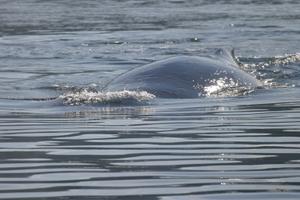
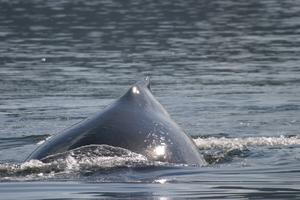
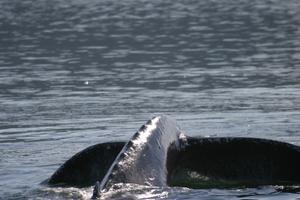
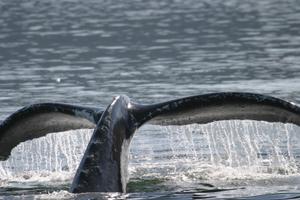
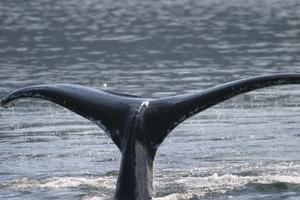
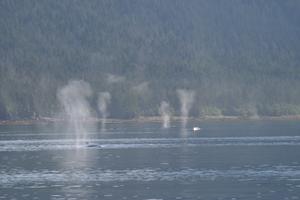


 Share This Page
Share This Page